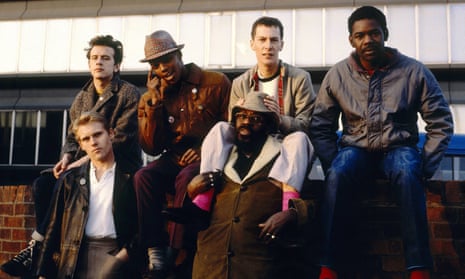Lionel Martin, the Jamaican saxophonist known as Saxa, who has died aged 87, gained international prominence by playing with the English ska group the Beat in the 1980s.
Although he was a generation older than the other members he turned the age-gap into an asset, carrying himself with an air of confidence that was inspirational to his followers. He brought a specifically Jamaican lyrical quality to his endeavours and never needed a second take when recording.
Born at Croft’s Hill in the parish of Clarendon in Jamaica, Saxa started out playing the bamboo saxophone, before graduating to the drums. He moved to Kingston, where he worked as a jobbing musician and played jazz in Spanish Town and other larger centres, using the names Ganzi or Count Moody and a kit with a bass-drum illuminated from within.
In Kingston he learned to play the tenor saxophone and participated in recording sessions with other reedmen, notably Tommy McCook and Roland Alphonso, both of the Skatalites. Then in 1960 he moved to the UK, where he spent 18 months in London before settling in Birmingham. He sat in with the early Beatles at the Continental, a club in the city’s Soho Road, toured with exponents of ska such as Laurel Aitken, Prince Buster and Desmond Dekker, and played Latin American music in the soul clubs of Handsworth.
In 1979 he joined the Beat for their debut recordings and soon attracted a personal following, with much made of his “youthful” appearance as a (presumed) “octogenarian”, although he was only in his 50s. After the Beat’s breakup in 1983 he joined his friend Tony Beet in the Elevators, and after playing at the Town and Country Club in north London, they changed their name to the International Beat, surviving into the early 1990s.
In Birmingham Saxa maintained a healthy musical scene at the Crompton Arms, a hostelry favoured by Jamaicans, where he continued to play his highly rhythmic mixture of ska, reggae and ska-flavoured jazz. When the Beat briefly re-formed in 2003, he was back in the band. He also continued to play sessions at the Drum, a smart new Birmingham music venue, until the death of his wife, Peggy, in 2004, a loss that affected him deeply.
He started drinking heavily and disappeared for a lengthy period, during which his death was erroneously reported on local radio. He responded by going on another pub crawl to celebrate what was, he said, his own “wake”. A recluse towards the end of his life, he kept his saxophone polished and ready on a stand in the front-room, but no longer really wished to play.
He is survived by a daughter, Joy, in Jamaica, and Lionel and Francella, his two children with Peggy.
